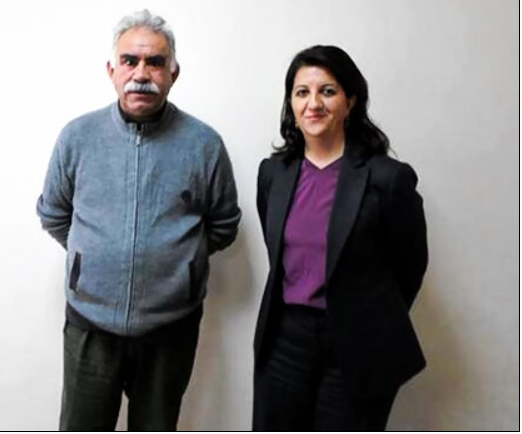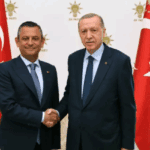Abdullah Öcalan, the imprisoned leader of the Kurdistan Workers’ Party (PKK), told recent visitors that “Syria is my red line,” referring to the Kurdish-led administration in northeast Syria, according to Pervin Buldan, a lawmaker from Turkey’s pro-Kurdish Peoples’ Equality and Democracy Party (DEM).
In an interview aired on Wednesday on JIN TV, Buldan described conversations with Öcalan on İmralı Island held in the context of efforts to revive talks with Ankara. She said Öcalan supports opening channels to the Kurdish-led authorities in northeast Syria if the domestic process advances and noted that most Syria-related contacts are conducted with state officials rather than party representatives. “The leader said more than once that Syria is his red line,” she said, adding that engagement with actors there could help shape next steps if ground rules are agreed.
The remarks came amid sharpening rhetoric in Ankara. Devlet Bahçeli, leader of the Nationalist Movement Party (MHP) and an ally of President Recep Tayyip Erdoğan, warned this week that a cross-border operation would be “inevitable” if Kurdish-led forces fail to honor an agreement with Damascus, framing the issue as a matter of national security. Around the same time, columnist Abdulkadir Selvi wrote that Erdoğan had effectively signaled support for a joint move by Damascus, Turkey and allied militias against the Syrian Democratic Forces (SDF) if they did not disarm.
The Syrian Democratic Forces (SDF), which include both Kurdish and Arab fighters, Turkey argues that the group’s dominant component, the People’s Protection Units (YPG), is the Syrian branch of the PKK and firmly rejects the continuation of Kurdish-led autonomy along its border. Recent clashes between fighters connected to Damascus and SDF units, along with plans to merge rival groups into Syrian state structures and talks about including SDF members in national forces, have highlighted the increased risk of conflict if negotiations break down.
Buldan also urged Turkey’s new parliamentary commission to accelerate work on a peace framework. She called for a small cross-party group within the National Solidarity, Brotherhood and Democracy Commission to meet Öcalan and report back, suggesting five or six members from each party. The commission, formed on August 5, has been tasked with proposing legal and political steps to end the conflict; Speaker Numan Kurtulmuş has said it aims to finish by December 31, with possible two-month extensions.
The PKK, which launched its armed campaign in 1984 and is designated a terrorist organization by Turkey and its Western allies, announced in May 2025 that it would end its insurgency and pursue politics, later holding a symbolic disarmament event in northern Iraq in July. The DEM Party, the third-largest group in parliament, supports a negotiated settlement within a legal and constitutional framework



